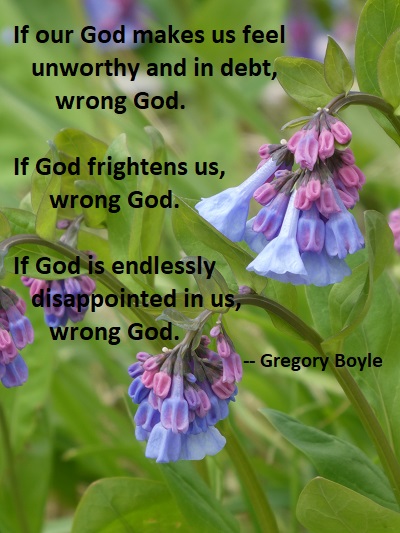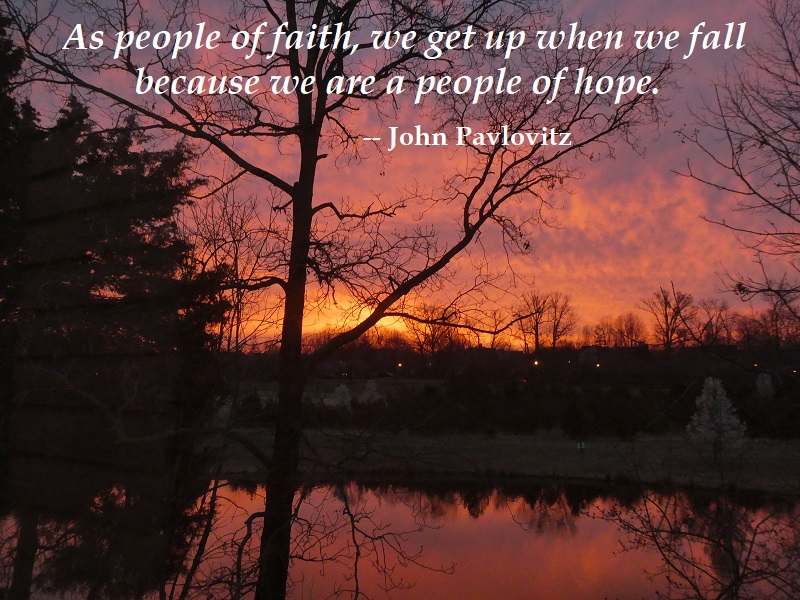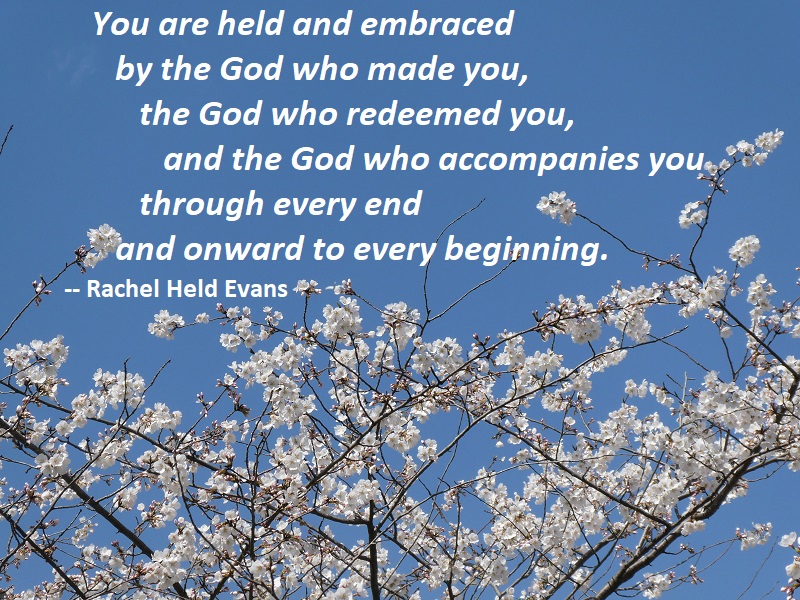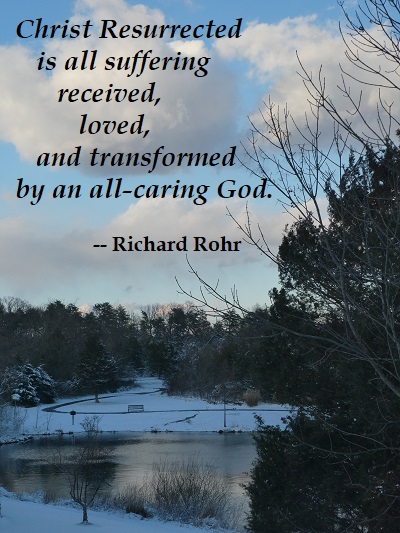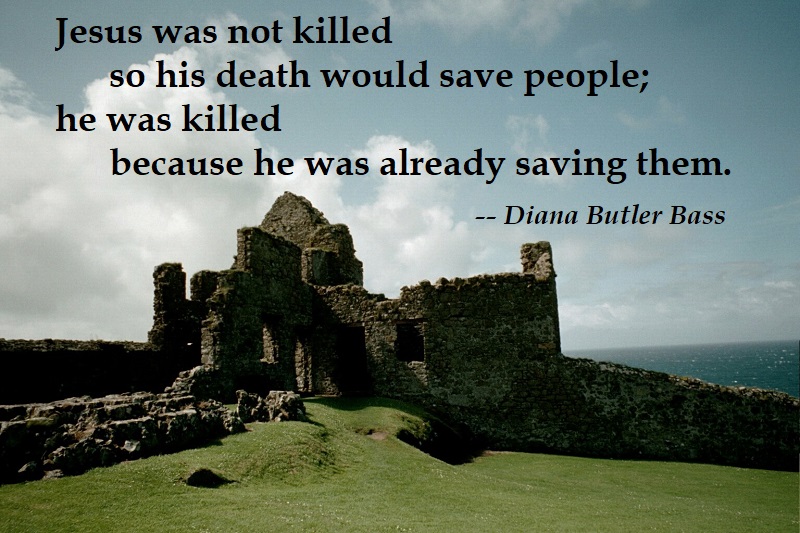
It was not just the rich young man who asked Jesus how to be saved. All sorts of people in the gospels got saved before Jesus died on the cross. When Jesus healed, they experienced salvus, God’s salvation. They followed him. Lives were changed, transformed. Disciples did give up riches and goods that they might inherit eternal life. Tax collectors abandoned their jobs and surrendered their social standing to eat with him. Children, slaves, soldiers, peasants, fishermen, farmers, prisoners, the sick, the blind, the lame — when they encountered Jesus, they found salvation, the wholeness, the healing, the oneness with God that had only been the stuff of longing. Every miracle, every act of hospitality, all the bread broken and wine served, everything that Jesus did saved people long before Rome arrested and murdered him.
It was all this loving and healing and saving that got him in trouble with authorities. He was not killed so his death would save people; he was killed because he was already saving them. He threatened a world based in fear, one held in the grip of Roman imperialism, by proving that a community could gather in love, set a table of plenty, and live in peace with a compassionate God. Jesus did at-one-ment long before being nailed to a cross. At-one-ment was the reason the authorities did away with him. No empire can stand if the people it oppresses figure out that reconciliation, love, liberation, and oneness hold more power than the sword. So Rome lynched Jesus: tortured him and hung him on a tree. That is the raw truth under all those sophisticated atonement theories.
Jesus was born a savior, and he saved during his lifetime. “Fear not!” “Peace on earth!” He did not wait around for thirty-three years and suddenly become a savior in an act of ruthless, bloody execution. Indeed, the death was senseless, stupid, shameful, evil. It meant little other than silence without the next act — resurrection — God’s final word that even the most brutal of empires cannot destroy salvus. This is no quid pro quo. Rather, Easter proclaims that God overcoes all oppression and injustice, even the murder of an innocent one. At-one-ment means just that. Through Jesus, all will be renewed, made whole, brought back into oneness, reunited with God. Salvation is not a transaction to get to heaven after death; rather it is an experience of love and beauty and of paradise here and now. No single metaphor, not even one of Paul’s, can truly describe this. We need a prism of stories to begin to understand the cross and a lifetime to experience it.
— Diana Butler Bass, Freeing Jesus, p. 96-98.
Photo: Dunluce Castle, Ireland, July 2001




